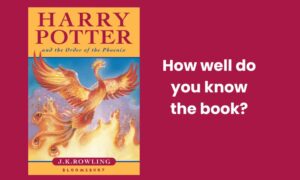9 tips for overcoming writer’s block
Writer’s block affects most writers from time to time. Even the most successful writers in the world will occassionally find themselves staring at a blank page.
Whilst writer’s block can be frustrating, it’s important to know that it’s only temporary. Here are several strategies you can try to overcome it:
1) Jump ahead in time
If you’ve plotted your story, and you have a rough idea of events that are going to happen in the future, then there’s no shame in jumping ahead! The new scene should give you a fresh take. Then revisit the part you were stuck on later.
You could even switch to a different project, and come back later.
2) Change Your Environment
Sometimes, a change of scenery can help stimulate creativity. Try writing in a different location, such as a coffee shop, park, or library.
3) Freewriting or writing prompts
Set a timer for a short period, like 10 or 15 minutes, and write without stopping or worrying about grammar or coherence. This can help free up your mind and get your creative juices flowing.
You can also try writing prompts to kickstart your creativity. There are many websites, books, and apps that offer writing prompts on various topics.
4) Take Breaks
Give yourself permission to take breaks when you’re feeling stuck. Take a walk, do some stretching, or engage in a relaxing activity to clear your mind.
5) Brainstorm Ideas
Spend some time brainstorming ideas related to your writing project. Write down anything that comes to mind, even if it seems silly or unrelated. You might discover a new direction to take your story.
6) Set Small Goals
Break your writing task into smaller, manageable goals. Instead of focusing on finishing the entire project, aim to write a certain number of words or complete a specific scene or chapter.
Stephen King aims to get 6 pages finished per day.
7) Try plotting
Once you have the initial idea for your story, plotting is a great way to avoid writer’s block. One great plotting method is the ‘therefore’ and ‘but’ technique.
This is where you use the words ‘therefore’ or ‘but’ between each point in your story. It can really help to drive the story forward in a natural way.
Here’s a very simple example:
Susie is on a night out but isn’t drinking because it’s a work night and she’s on her final warning [however] her friend spikes her drinks with alcohol [therefore] Susie wakes up late for work [therefore] her boss fires her [therefore] she needs money, so she steals money from the safe [however] her colleague sees her [therefore] Susie pleads with the colleague not to tell anyone [however] the Sheriff rolls up outside her house that night.
From a simple starting place, you can drive the plot forwards.
8) Read
Reading books, articles, or blogs in your genre can help spark inspiration and reignite your creativity.
9) Talk It Out
Discuss your ideas with a friend, family member, or fellow writer. Sometimes, talking through your ideas can help clarify your thoughts and identify potential solutions to your writing challenges.
Experiment with different strategies to see what works best for you. And remember, writer’s block is temporary. Keep writing, and eventually, you’ll break through the block and find your creative flow again.





